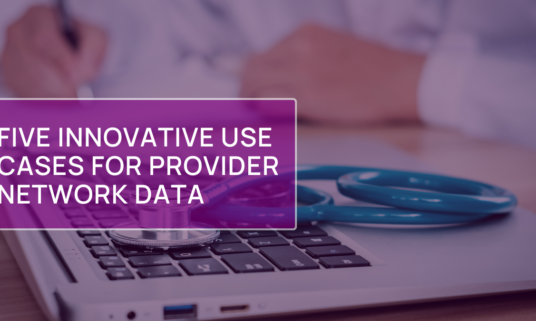Ideon Blog
May 17, 2024
By: Ideon
Five ways your provider-network data goes wrong—and how to avoid them

Summary
High-quality provider-network data allows healthcare platforms to deliver an optimal user experience. Discover the common pitfalls—and learn how to avoid them—to ensure your provider data is up to par.
As a leader in healthcare navigation, digital health, or InsurTech, you’ve likely invested heavily in developing an intuitive platform. Key to that effort is the provider look-up feature, enabling users to find in-network providers in order to make informed, cost-efficient healthcare decisions.
At the core of this feature is provider-network data: the information about doctors, hospitals, and insurance networks that users are searching for. But while many platforms work with data partners for easy provider data integration, not all solutions are created equal.
Below, we outline exactly what can go wrong with your provider-network data—and how to avoid each pitfall.
The data is incomplete.
Incomplete data means poor search results. Whether your end-users are looking for the basics like provider names, addresses, or specialities, or more detailed information like network IDs or network tiers, it’s all mission-critical information for them.
All of this means that the breadth of provider-network data can be the pivotal differentiator between a great solution and a passable one.
How to avoid the pitfall: Identify the information you need on your platform. Does the API solution you’re looking at (or already using) provide everything you need? The answer here will give you a good idea of whether you’ve found the right partner—or need to move on.
And remember: robust data will let users search providers by network and/or plan, and search networks by carrier. Typical use cases include selecting a primary care provider during open enrollment, confirming that a physician referral falls within a patient’s network, and facilitating app-based scheduling of physician appointments.
The data is inaccurate.
Comprehensive data is only an edge if it’s also correct. Inaccurate data—say, regarding physician network participation, specialties, or addresses—can have a significant downstream effect, resulting in billing errors, denied claims, and the person-hours required to rectify them.
How to avoid this pitfall: Run a review of your provider-network solution—or ask a prospective data solution provider for a sample of their data to test.
Compare what the API is giving you with data you already have. Does the solution have validation capabilities and procedures to ensure that data is verified and up-to-date? Does it have meaningful measures in place to detect and reconcile discrepancies?
The answers will give you a good idea of whether the solution is the right one for your platform.
The data isn’t timely.
What if the data your users are seeing is both complete and accurate—but out of date? That’s an inaccuracy in its own right, and one that is avoidable only if you ensure your team is following carrier data changes on their discrete schedules.
How to avoid the pitfall: An effective provider-network data solution will update data from carriers and other sources on a regular cadence, often weekly, monthly, or somewhere in between. Ensure that your solution accounts for the fact that carriers provide their data on their own schedule, and (critically) has an automated process in which it ingests, aggregates, and standardizes the data to ensure the freshest data possible.
The solution isn’t scalable.
If you are seeking to aggregate data from multiple carriers, it is crucial that you select a provider-network data solution that is capable of evolving and scaling right alongside you. Without that capability, integrating to each carrier will become prohibitively cumbersome.
How to avoid the pitfall: Run a check of your current solution or ask a prospective one how they would handle a multi-integration scenario, and the timeline on which they can get a new carrier online with you. If the answer is more than a couple days, it’s time to move on.
The solution lacks strong carrier relationships.
The key to accessing complete, timely, and accurate data is relationship-based buy-in from carriers. Without it, you are essentially back at square one.
Whether you have these or need to build more in order to scale, your provider-network data solution must be your ally on this in order to ensure you are getting access to the data on which your platform runs, as soon as you can.
How to avoid the pitfall: Ask the solution you have or are considering for a list of carriers with which they have relationships—and to rate the relationships as strong, good, fair, or poor.
***
The process of testing a provider-network data solution can be intense, with limited time to make a decision that will shape an organization’s ability to meet customer and end-user expectations for years. These five pitfalls—and mitigating actions—will help product leaders and data strategy decision-makers to choose the best solution for their needs, leaving more time for cost-benefit analysis and other evaluation.
Interested in learning about Ideon’s provider-network API? Contact us here.
Test the industry’s most accurate provider-network data
Digital health, healthcare navigation, and analytics platforms rely on Ideon for the highest quality provider-network data. Download a data sample below.


